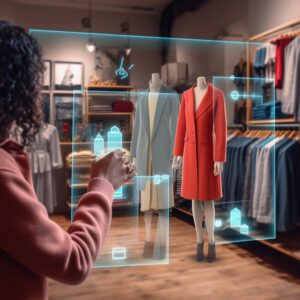By Sandeep Bhanote, CEO, Global Bay Mobile Technologies
When I ask retail CIOs about the greatest challenges associated with current store operations and technologies, multi-channel customer interaction ― or lack thereof ― consistently tops the list.
Today retailers are facing inherently siloed POS, inventory management, e-commerce, and ERP systems that prevent them from creating a single view of the customer: their buying history, behaviors, preferences, etc. Likewise, store associates are not empowered with information when, how and where they need it. Sure, retailers have access to the information in multiple locations, but the problem is that it’s in too many places that aren’t able to communicate with each other.
The Mobile Solution
Cutting-edge retailers are looking to mobile technologies as the “multi-channel bridge” to overcome the chasms between their current systems. Mobile solutions can integrate to retailers’ current systems and create a layer to access and consolidate meaningful store information.
Advertisement
An effective mobile deployment can act as a virtual data ‘traffic cop’ ― pushing and pulling data to and from a retailer’s legacy store system by serving up the data from multiple, disparate back-end systems and presenting it to store associates and customers in a clean, unified user interface.
An effective mobile integration provides sales associates with the ability to access a 360-degree view of customers and their shopping preferences as well as a full view of inventory and product availability ― both in store and in the distribution facility. Mobile also can provide customers with better information on their smartphones, in-store kiosks and on the Web.
Using Mobile To Enhance Customer Interactions
It is clear that mobile represents a sea change in how retailers approach store operations and consumer interactions, and with the emergence of better handheld options and an increasingly digitally savvy workforce and consumer base, mobile deployments are no longer constrained by user training and adoption.
The “Apple Store Experience”
By allowing store associates to service customers throughout the store, the “Apple Store Experience” has earned its leadership position in mobile retail. To Apple, mobile POS represents more than just swipe and go, line busting, and check out; it’s also about working with the customer, understanding purchase behavior and providing customer service at the point of contact rather than a fixed POS terminal. Apple has demonstrated that mobile POS can help retailers reduce or even eliminate long lines at check out, lessen lost sales due to walkouts, and increase actual sales by providing a better and more personalized retail environment.
E-commerce vs. Store ― Changing Dynamics
Its no surprise that the siloed nature of e-commerce and store inventory/POS is pervasive. For example, most store associates don’t (or can’t) push an order to e-commerce for home delivery when something is out of stock. Either access to the Web inventory is not readily available in the store or they are dis-incentivized to do so (they may not make commission or the store doesn’t get credit for that sale). Being able to access the store’s website at the POS terminal might help, but it’s not an appropriate space for a customer Web submission in addition to tying up the terminal.
Savvy retailers are now adopting “endless aisle” capabilities that integrate store systems with e-commerce back-ends. These smart technologies that connect mobile POS systems to e-commerce platforms empower store associates to search for products from handheld devices throughout the store. Mobile solutions, deployed correctly, make selling seamless for the associate and will result in an enhanced customer experience.
The transition from brick and mortar to e-commerce should be a seamless one that allows store associates facing an out-of-stock item to quickly direct the sale to e-commerce or the nearest store for fulfillment ― conditioning store associates to be multi-channel oriented. Conversely a mobile shopper should be able to locate items in store or online ― all from the same app.
As the convergence of store and e-commerce operations narrows, changing the way retail store associates interact with customers requires looking at the store operations process as a whole. Mobile tools like iPad CRM apps allow communication between disparate data depositories to occur more efficiently. These challenges can be overcome, but like the incentive issue, it requires a holistic view of mobile in the store.
Mobile Technology ― The Next Retail Disrupter
Incorporating mobile solutions in the retail environment is not a new concept, but advances in technology, coupled with a workforce and consumer base that is more deeply engaged in mobile apps and devices, represents a golden opportunity for retailers to easily incorporate mobile solutions into the store environment.
Mobile technologies allow retailers to streamline business and improve consumer relationships. Past barriers such as being tied to a particular mobile device or workforce training are rapidly evaporating, and a comprehensive platform approach to link all essential back-end store infrastructure now exists. Retailers must embrace this new frontier of mobile store operations technology and use it to evolve their business and prepare them for the future.








